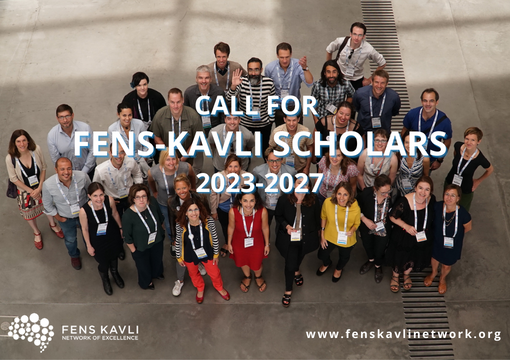The call for 2023-2027 FENS-Kavli Scholars is now closed.
The 2023-2027 FENS-Kavli Scholars were selected.
– Check here the profiles of current FENS-Kavli Scholars
Application Procedure 2023
Diversity is a central value of the FENS-Kavli Network and is thus a central focus in our recruitment process.
Candidates should be available for maximum 20 minutes online interview scheduled to take place between 7 and 15 June 2023.

The Call for FENS-Kavli Scholars 2023-2027 is now closed.
For the 2023-2027 FKNE cohort, we aim to recruit 15 excellent, diverse, engaged scientists from all Europe who are:
Our ideal cohort has:
The FENS-Kavli Scholars:
The selection of the 15 new FENS-Kavli Scholars will take place in the first half of 2023.
2023 Selection Committee:
2021 Selection Committee
2018 Selection Committee
Megan Carey – FKNE Chair
Gaia Novarino – FKNE Vice-Chair
Carmen Sandi – FENS President-Elect
Thomas Mrsic-Flogel – FENS Forum 2018 Program Committee Chair
Panayiota Poirazi – Former FKNE Chair
Filippo Del Bene – FKNE Scholar
Patrik Verstreken – FKNE Scholar
Tim Vogels – FKNE Scholar
2016 Selection Committee
Rui M. Costa – FENS Forum 2016 Program Committee Chair
Marian Joëls – FENS Past President
Monica Di Luca – FENS President
Marian Joëls – FENS Past President
Marianne Amalric – FENS Secretary General
Juan Lerma – FENS Secretary General-Elect
Patrick Verstreken – mid-career neuroscientist